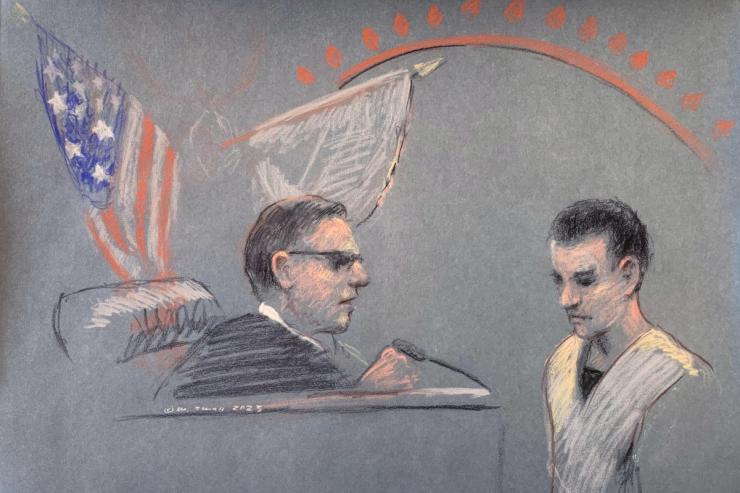The News
After Jack Teixeira was identified as the suspected leaker of highly classified documents, questions have swirled over how the 21-year-old Air National Guardsman could obtain and distribute such sensitive information, including details of troop movements in the Russia-Ukraine war.
On Friday, Teixeira was charged with the unauthorized detention and transmission of national defense information and unauthorized removal of classified information and defense materials.
His job description and levels of security clearance detailed in a criminal complaint offer a glimpse into how Teixeira may have managed to get a hold of top secret documents that he then allegedly leaked on a private Discord chatroom called “Thug Shaker Central.”
Know More
What did Jack Teixeira do for work?
Since May 2022, Teixeira held the rank of airman first class in the 102nd Intelligence Wing at the Otis Air Base in Cape Cod — home to the Massachusetts Air National Guard. One of the main missions of the base is to track, intercept, and defend against foreign incursions in the U.S. air space.
Intelligence experts told CNN said that the 102nd Intelligence Wing is responsible for gathering and packaging highly classified intelligence for “combatant commanders” who are among the most senior military officers around the world.
The criminal complaint against Teixeira said that his title was Cyber Defense Operations Journeyman as of this February. A National Guard spokesman told Semafor that his role was a Cyber Transport Systems specialist. According to the Air Force’s website, these specialists are tasked with keeping the service’s “vast, global communications network” up and running.
What did he have access to through his job?
Multiple reports suggest that Teixeira likely had access to the Joint Worldwide Intelligence Communication System (JWICS), a computer system that contains a plethora of military intelligence — from details about overseas operations to secret foreign policy decisions.
With access to JWICS, Teixeira would have been able to look up any topic.
According to a former intelligence agent who spoke with Slate, JWICS was recently modified so that users could not download files, which could explain why Teixeira allegedly wrote down transcripts and summaries of intelligence documents when he first accessed them.
A Washington Post report on the suspected leaker found that at least one of the leaked documents appeared to have been printed from Intellipedia — a data-sharing system used by U.S. intelligence agencies.
According to the complaint, Teixeira had expressed concerns that he could be discovered transcribing texts of the documents in his workplace, so he began taking the documents home and photographing them to upload to his gaming chatroom.
Did Teixeira have security clearance?
Teixeira received a “Top Secret security clearance” in 2021, which was required for his job as a Cyber Defense Operations Journeyman, the complaint stated.
To get such clearance, Teixeira would have signed “a lifetime binding non-disclosure agreement” acknowledging that leaking protected information could result in criminal charges.
Since 2021, Teixeira also maintained “sensitive compartmented access” or “SCI” to other highly classified programs.
Classified documents in the U.S. are usually ranked “Confidential,” “Secret,” “Top Secret,” or “Top Secret - SCI.” SCI documents are “further restricted” and require additional control systems for accessing them.
According to investigators, the material that Teixeira allegedly leaked was at the SCI level. Some of the material appeared to depict government information that was used during Pentagon briefings with senior military and civilian government officials.
What could’ve gone wrong?
“It sounds as if it was too easy for too many people to get a high-security clearance and then have access to things they did not need to know,” Charles Stevenson, a professor of American foreign policy at Johns Hopkins School of Advanced International Studies, told Semafor.
Stevenson said that the U.S. government needs to rethink how broadly access should be given to employees, and, notably, how much training is needed to “maintain secrecy.”
On Friday, President Joe Biden said he has directed military and intelligence officials “to take steps to further secure and limit distribution of sensitive information.”
Now What?
Experts told Semafor that Teixeira does not seem to fall within the typical category of leakers who want to sabotage the U.S. government — which raises the question of how he should be punished.
Teixeira faces up to 15 years in prison if convicted of the charges.
“He’s a kid who wants to show off,” Stevenson said, adding that it’s too early to determine the severity of Teixeira’s actions to predict his punishment.


